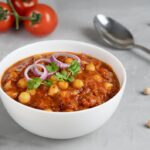Asthma is a chronic respiratory condition characterized by inflammation and narrowing of the airways, leading to difficulty in breathing. While diet alone cannot cure asthma, certain foods can exacerbate symptoms or trigger attacks. For South Africans living with asthma, being mindful of dietary choices can help manage the condition more effectively. Here are 20 foods to avoid if you have asthma:
1. Processed Foods
Processed foods often contain preservatives, additives, and artificial flavorings that can trigger asthma symptoms. Avoid packaged snacks, ready meals, and processed meats.
2. Sulfite-Containing Foods
Sulfites are preservatives found in foods like dried fruits, wine, and pickled products. They can cause respiratory issues in some individuals with asthma.
3. Dairy Products
For some people, dairy products like milk, cheese, and yogurt can increase mucus production, potentially worsening asthma symptoms.
4. Eggs
Eggs can be a common allergen and may trigger asthma symptoms in sensitive individuals. Avoiding eggs and products containing eggs can help manage symptoms.
5. Shellfish
Shellfish allergies are common and can trigger severe asthma attacks. Avoid shrimp, crab, lobster, and other shellfish if you have a known allergy.
6. Nuts
Nuts, particularly peanuts, are common allergens and can cause asthma symptoms in sensitive individuals. Always check food labels for hidden nut ingredients.
7. Wheat
Wheat and gluten can trigger allergic reactions in some people, leading to asthma symptoms. Consider gluten-free alternatives if you suspect a wheat sensitivity.
8. Soy Products
Soy is another common allergen that can exacerbate asthma symptoms. Avoid soy milk, tofu, and other soy-based products if you have a known soy allergy.
9. Foods High in Histamine
Foods like aged cheeses, fermented products, and processed meats contain high levels of histamine, which can worsen asthma symptoms.
10. Salicylate-Containing Foods
Some people with asthma are sensitive to salicylates, found in foods like tomatoes, berries, and certain spices. Avoiding these foods can help reduce symptoms.
11. Fried Foods
Fried foods can increase inflammation and worsen asthma symptoms. Opt for baked or grilled alternatives instead.
12. Fast Food
Fast food is often high in unhealthy fats, sodium, and additives, all of which can trigger asthma symptoms. Limit consumption of fast food to manage your condition better.
13. Carbonated Beverages
Carbonated drinks like sodas can cause bloating and pressure on the diaphragm, making breathing more difficult for asthmatics.
14. Chocolate
Chocolate contains caffeine and can trigger acid reflux, which may exacerbate asthma symptoms. Limit chocolate consumption to prevent potential issues.
15. Alcohol
Alcohol, especially beer and wine, contains sulfites and can trigger asthma symptoms in sensitive individuals. Moderation or avoidance is recommended.
16. MSG-Containing Foods
Monosodium glutamate (MSG) is a common food additive that can trigger asthma symptoms in some people. Check labels and avoid foods with added MSG.
17. Spicy Foods
Spicy foods can cause acid reflux and respiratory irritation, potentially worsening asthma symptoms. Consider milder seasoning alternatives.
18. Artificial Sweeteners
Some artificial sweeteners, like aspartame, can trigger allergic reactions and asthma symptoms. Opt for natural sweeteners like honey or stevia instead.
19. High-Sodium Foods
Excessive sodium intake can lead to fluid retention and increased blood pressure, exacerbating asthma symptoms. Reduce salt intake and choose low-sodium options.
20. Foods with Trans Fats
Trans fats found in margarine, baked goods, and fried foods can increase inflammation and worsen asthma. Choose healthy fats like olive oil and avocados.
Managing Asthma Through Diet
In addition to avoiding trigger foods, incorporating a healthy, balanced diet can support overall lung health and help manage asthma. Here are some dietary tips:
- Eat Fresh Fruits and Vegetables: Rich in antioxidants, vitamins, and minerals, fresh produce can help reduce inflammation and improve respiratory health.
- Omega-3 Fatty Acids: Foods like salmon, flaxseeds, and walnuts are high in omega-3s, which have anti-inflammatory properties.
- Hydration: Drink plenty of water to keep mucus thin and maintain overall health.
- Lean Proteins: Opt for lean meats, legumes, and plant-based proteins to support muscle health and overall well-being.
- Whole Grains: Incorporate whole grains like brown rice, quinoa, and oats for their fiber and nutrient content.
While asthma can be a challenging condition to manage, dietary choices play a crucial role in controlling symptoms and preventing attacks. By avoiding the above-mentioned foods and adopting a healthy, balanced diet, South Africans with asthma can improve their quality of life and reduce the frequency and severity of asthma symptoms. Always consult with a healthcare professional or dietitian to tailor dietary plans to your specific needs and conditions.








